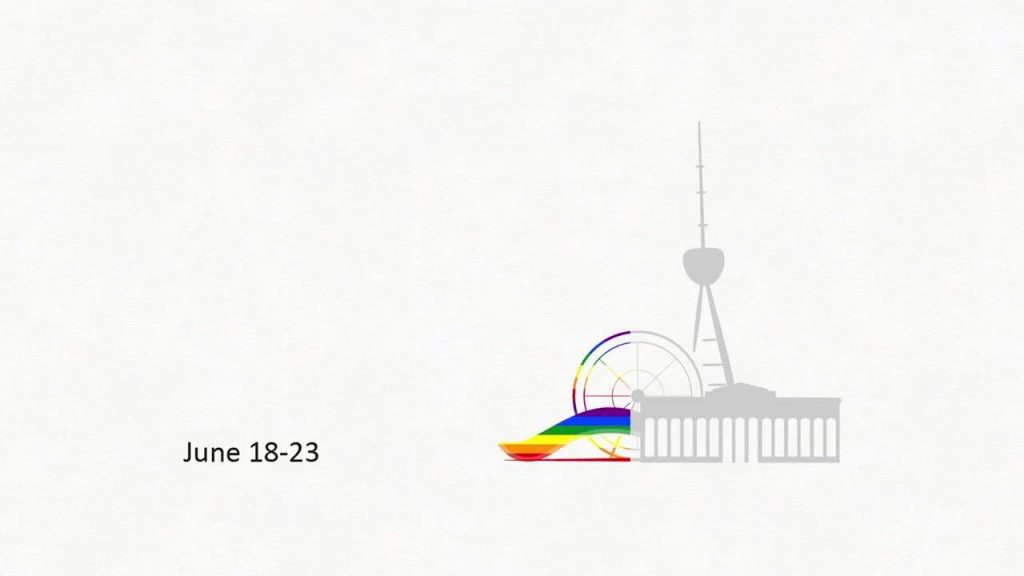Tbilisi Pride, uniting LGBTQ and human rights activists, released a statement on June 18, saying that the first-ever Pride Parade in the history of Georgia will go ahead.
The statement reads that their supporters, family members, friends, representatives of international organizations and foreign diplomats, EU citizens and guests from neighboring countries will join the event in solidarity.
Tbilisi Pride organizers accused the government of inaction, as well as of making irresponsible and threatening statements.
“For this very reason, we will march – in order to compel the government to protect human rights and meet its commitments under the country’s Constitution. We will march in order to voice the challenges facing lesbian, gay, bisexual, transgender and queer people. We will march because not only we are threatened today, but Georgia’s statehood and democratic system also remain under threat,” the statement reads.
Tbilisi Pride organizers held the latest meeting with the Interior Ministry officials on June 17, where they proposed them to cancel the events citing personal safety and general security concerns.
Vigilantes called off…possibly
Levan Vasadze told his supporters late on June 17 that the Interior Ministry assured him that the the Pride Parade won’t be held in Tbilisi. He therefore called off the planned vigilante patrols in the capital. On June 18, as the the rumors of Pride events going ahead circulated, Vasadze reiterated that his supporters stand ready “to maintain order” in the capital.
Patriarchate’s new statement
The Georgian Orthodox Church released another statement on June 17, accusing unnamed “forces” of using LGBT community for political purposes while simultaneously trying to undermine the Orthodox Church’s credibility.
The Patriarchate argued that freedom of expression is not an absolute right and it can be restricted if it goes contrary to moral values and creates a real danger of confrontation in the society.
While the international conventions indeed cite considerations of public morale as grounds for limiting the freedom of expression – in narrowly defined circumstances – the Constitution of Georgia actually does not.
The Constitution of Georgia
Article 17 Freedom of Thought, Information, Media and Internet
1. Freedom of thought and expression are protected. Nobody can be persecuted based on thought and its expressions.
(…)
5. Restriction of these rights is allowed only in circumstances foreseen by law, for reasons of safeguarding public safety of the democratic society or its state security, or ensuring territorial integrity, for protecting the rights of the third parties, for preventing the distribution of the confidential information or for ensuring independence and impartiality of the courts.”
It also pointed at the government’s responsibility to take measures for ensuring civic peace. While arguing it stands for Western path of Georgia, it issued a veiled call on international organizations and foreign diplomats not to support the Tbilisi Pride openly, so that the citizens “attitude towards the West is not undermined”.
This post is also available in: ქართული (Georgian) Русский (Russian)

